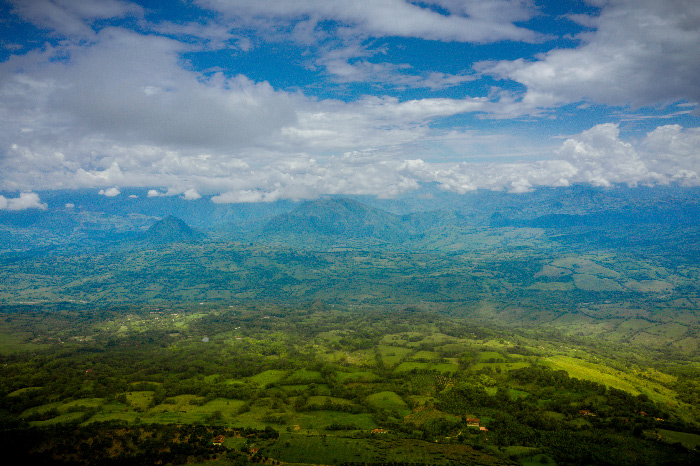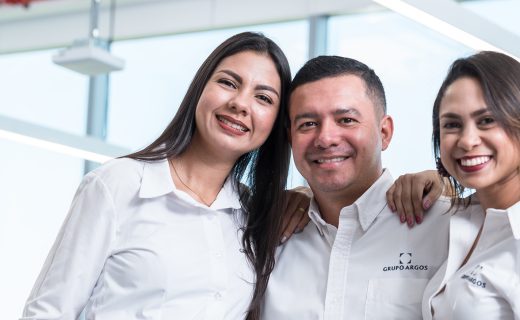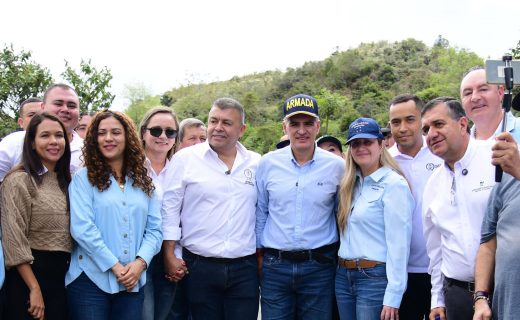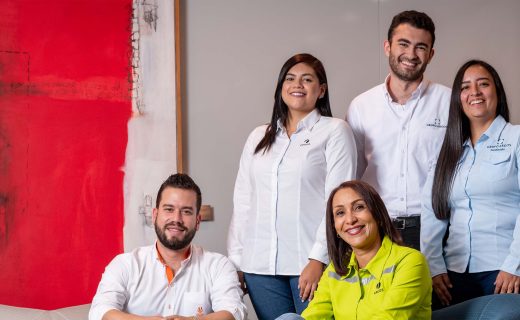

The Sustainable Cartama Alliance for the protection and recovery of ecosystems in the Southwest of Antioquia is born
11 March 2021- The Sustainable Cartama Alliance is a public – private initiative that unites efforts for the conservation, sustainability and development of the Southwest of Antioquia. It is made up of the Fundación Grupo Argos, Celsia with its ReverdeC program, Odinsa with its La Pintada Concession, Proantioquia, Corantioquia, Corporación Agroparque BioSántico and the Government of Antioquia.
- In 2021, actions will be carried out to contribute to the availability of water, the restoration and recovery of ecosystems; Among them: the planting of 300 thousand trees in the Cartama river basin in the San Antonio stream, the establishment of demonstration plots, the management of new alliances and the creation of a model focused on environmental training with four educational institutions.
The Sustainable Cartama Alliance articulates public and private actors for the protection and environmental regeneration of the Cartama Province, in the Southwest of Antioquia. With this union of wills, the recovery of strategic ecosystems of the region is sought from restoration practices, the integral protection of the Cartama river basin and the promotion of sustainable development, strengthening the labor capacity of the inhabitants of the territory, their systems productive activities, citizen participation and environmental education.
“The Alliance sought at first, with the planting of 62 thousand individuals of different species, to recover the forest. However, a strategic component is the creation of educational modules designed for the role of young people in the Province and their appropriation of the Agroparque Biosuroeste”.
Edward Jaramillo – Proantioquia Project Manager
“At Fundación Grupo Argos, we are proud to announce this alliance for the conservation of this strategic area of the department. In 2021 we will continue working with determination to protect the water resource and for that we will plant 300,000 native trees ”.
Maria Camila Villegas – Director of Conservation of the Fundación Grupo Argos
The Alliance will also focus the efforts of the participating entities in the development of training activities, education and environmental culture for the communities of different municipalities of the Cartama province, who will be protagonists in the processes of conservation and environmental restoration.
Among the planned actions is the intervention of the San Antonio stream, which provides water to the aqueduct of the municipality of Támesis and tributes to the Cartama River at the height of the Agroparque Biosuroeste; the continuation of the process of ecological restoration and regeneration in the strategic areas and incorporate the Verde Vivo environmental education program of Fundación Grupo Argos in the educational institutions of the Cartama river basin, together with the Piragua program of Corantioquia, with which participatory monitoring will be carried out with the communities regarding water quality.
Some results in the territory
Through the Sustainable Cartama Alliance, initiatives and projects carried out in the territory by each of the allies are combined with the purpose of promoting the sustainable development of this region of Antioquia and working jointly for its conservation and preservation. Some of the results are:
- Beginning of the recovery of areas where the provision of water and other ecosystem services that are basic for the region.
- The recovery of more than 140 hectares from the restoration of strategic areas.
- More than 200,000 trees planted in 2019 and 119,000 in 2020 in the Cartama basin, specifically in the San Antonio stream, which provides water to the population of the municipality of Támesis and others downstream.
- Articulated work and strategic actions between the private sector and the public sector with environmental impacts in the Cartama Province.
As a symbolic act for the signing of the Alliance, representatives of the allied organizations planted 30 individuals of different species in the lands of the Agroparque Biosuroeste.
Mas noticias
-
 Employer Brand
Employer Brand -
 Talent
TalentOver 2,800 Employees Trained in Diversity and 57% Female Representation on the Board of Directors: Grupo Argos Advances Its Equity and Inclusion Strategy
15 April 2025 Read more -
 Creamos Valor Social
Creamos Valor SocialMore than 25,000 people will benefit from the improvement of the Alto de la Quiebra – Santo Domingo road, developed through the Works for Taxes mechanism
9 April 2025 Read more -
 Talent
TalentAccess to postgraduate programs: one of the talent development benefits that more than 200 Grupo Argos employees have used in recent years
8 April 2025 Read more -
 Employer Brand
Employer BrandMore than 1,800 employees from Grupo Argos companies went through internal mobility processes during 2024, with 27% of them being promotions
3 April 2025 Read more
